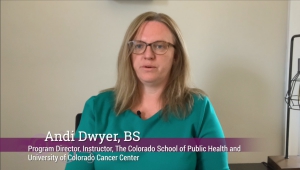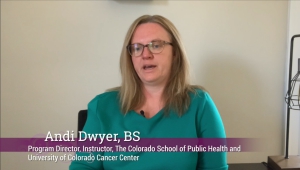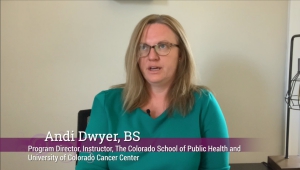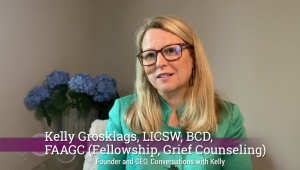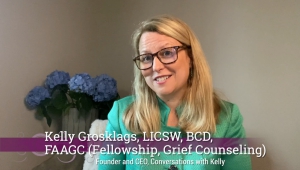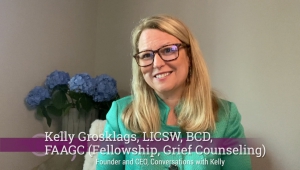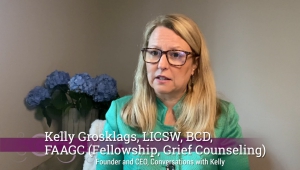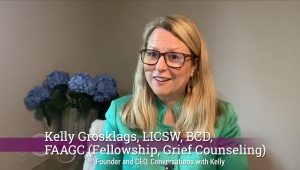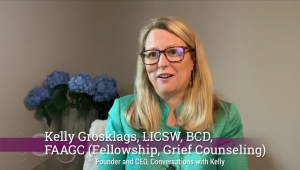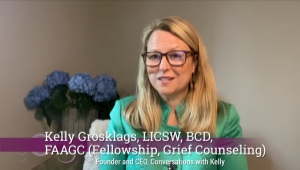Video Library Categories
- Acuity
- AONN+ Memories
- Barriers to Care
- Best Practices
- Best Practices in CAR T-Cell Therapy
- Board of Trustees
- BOLD
- Breast Cancer
- Cancer Biomarkers
- Cancer-Related Legal Issues
- CAPE CLL
- Caregivers
- Case Studies
- Chronic Disease
- Clinical Pearls
- Clinical Trials
- CoC Standards
- Commission on Cancer
- Committees
- Conference Testimonials
- Coordination of Care/Care Transitions
- COVID-19
- Distress Screening
- Evidence into Practice
- Financial Navigation
- Financial Toxicity
- Genetics and Genomics
- Health Disparities
- Heroes of Hope
- Immunotherapy
- Integrative Cancer Care
- Local Navigator Networks
- Member Benefits
- Membership Testimonials
- Mental Health
- Navigation
- Navigator Anecdotes
- Navigator FAQs
- Networking and Community
- Novice Navigators
- Nurse Navigation
- Nurse Navigators Video Vignette Series
- Oncology Care Model
- ONE Award
- Operations Management
- Patient Advocacy/Empowerment
- Patient FAQs
- Patient Navigators
- Policy and Advocacy
- Precision Medicine
- Products and Devices
- Professional Roles and Responsibilities
- Psychosocial Support Services/Assessment
- Reducing Racial Disparities in Cancer Care
- Research
- Research/Quality/Performance Improvement
- Role of the Navigator
- Sexuality and Cancer
- Standardized Metrics
- Starting a Navigation Program
- Support Services
- Survivorship
- Technology
- Telehealth
- Tools and Resources
- Town Hall and Panel Discussions
- Tumor Boards
- Value-Based Care
- What's Your Why?
Coordination of Care/Care Transitions
Hesitancy Around Cancer Screenings During COVID-19
Andi Dwyer, BS, shares how hesitancy around cancer screenings during COVID-19 could lead to a rise in cancer cases.
Cancer Rates in 2021
Patients who delayed their cancer screenings due to the pandemic are now joining patients who were scheduled for screenings in 2021, leading to a large patient volume for institutions to consider.
COVID-19 Impact on Cancer Screenings
Andi Dwyer, BS, explains how the COVID-19 pandemic delayed many cancer screenings for the average-risk population.
Oncology Navigators and Advanced Disease Patients
Kelly Grosklags, LICSW, BCD, FAAGC shares advice for oncology navigators who manage advanced-disease patients.
The Mental Health of Oncology Navigators
Oncology navigators need to set boundaries with their patients and their colleagues to ensure their mental health is a priority.
Oncology Professionals Need to Take Measures to Preserve Mental Health
Working in oncology can take a toll on one's mental health; oncology navigators should take measures to avoid burnout and preserve their mental health.
Initial Conversations with Patients
Oncology navigators can provide better care and prepare patients for the possibility of death by having difficult conversations at diagnosis, learning the patient's treatment goals, and having these conversations often.
Creating Trust with Your Patients
Oncology navigators have the benefit of learning about a patient beyond their diagnosis and creating a safe space for them. Building trust among a provider team will lead to better outcomes.
Perfect Provider and Patient Syndrome Affecting Care
Perfect Provider Syndrome and Perfect Patient Syndrome affect patient care because there are less opportunities for real conversaitons.
Perfect Provider Syndrome in Oncology
Kelly Grosklags, LICSW, BCD, FAAGC shares how Perfect Provider Syndrome can occur in providers who want to do everything they can to please their patients.
Thank You to Our Corporate Sponsors and Alliance Partners!

Major Corporate Sponsor

Patron Corporate Sponsor

Patron Corporate Sponsor

Patron Corporate Sponsor

Industry Relations
Council Member

Industry Relations
Council Member

Industry Relations
Council Member

National Alliance Partner

National Alliance Partner

National Alliance Partner

National Alliance Partner

National Alliance Partner

National Alliance Partner
Privacy Notice | Terms of Use
© 2009- DBA AONN+ Academy of Oncology Nurse & Patient Navigators® | PO Box 357387, Gainesville, FL 32635-7387 |
AONN+ DBA AONN+ is a 501(c)(6) organization under federal tax guidelines. AONN+ Foundation for Learning, Inc. a 501(c)(3) organization under federal tax guidelines.
AONN+ Advantage, LLC, a wholly owned subsidiary of AONN+.

